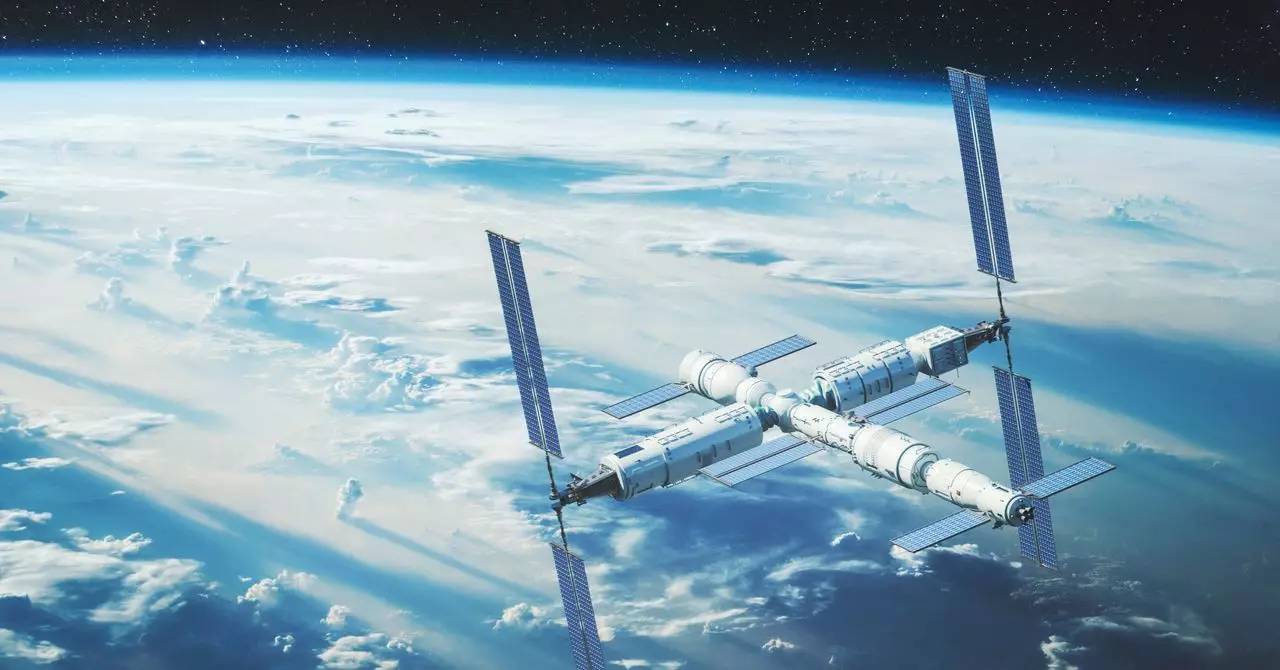China’s recent deployment of Wukong AI aboard the Tiangong space station signifies a pivotal moment in space exploration where artificial intelligence transcends traditional boundaries. Unlike prior space station assistants, which mainly handled basic tasks or psychological support, Wukong AI introduces a specialized focus on navigation and tactical planning. This shift highlights China’s ambitious vision to cultivate a self-sufficient, intelligent space infrastructure capable of managing complex operations with minimal ground intervention.
By integrating a robust AI system to aid crew members during critical missions, China exhibits a clear determination to elevate manned spaceflight safety and efficiency. Wukong’s role during a recent spacewalk underscores its potential for real-time decision support—integrating aerospace data, fault diagnosis, and tactical suggestions—thus reducing the cognitive load on astronauts and allowing them to focus on their core responsibilities. Such advancements could dramatically influence the future of crewed missions, making them safer, more autonomous, and adaptable to unforeseen challenges.
Innovation Rooted in Cultural Pride and Strategic Ambition
Naming the AI “Wukong” after the legendary Monkey King encapsulates more than a cultural nod; it symbolizes a desire for agility, resilience, and ingenuity. Sun Wukong’s mythological traits—cunning, resourcefulness, and lifelong pursuit of knowledge—are intentionally reflected in the AI’s design. This cultural symbolism emphasizes China’s approach to space as an arena where traditional excellence and modern innovation intersect.
Strategically, this focus on advanced AI infrastructure aligns with China’s long-term plans to establish a comprehensive space ecosystem. The Tiangong station, with its focus on experiments in microgravity and potential lunar and Mars endeavors, is intended to serve as a cornerstone of China’s space dominance. Wukong AI’s capabilities in navigation and tactical planning are not isolated technological upgrades but integral parts of China’s vision for an independent, resilient space program capable of not only participating in but leading future extraterrestrial missions.
Balancing Autonomy and Human Oversight in Space
While the integration of Wukong AI is promising, it also raises questions about the balance between autonomy and human oversight—a tension present throughout aerospace history. The AI’s dual-module system, with one onboard the station and another connected to ground analysis, exemplifies a hybrid approach that leverages real-time problem-solving while maintaining human oversight.
Critically, this reliance on complex AI systems introduces vulnerabilities: software glitches, data security concerns, and potential misjudgments could jeopardize mission success or astronaut safety. Chinese authorities and engineers must therefore consider the ethical and operational implications of increasingly autonomous systems. While Wukong’s focus on space navigation is vital, it must operate within a framework that preserves human judgment and accountability, especially as the AI begins to handle more sophisticated tactical decisions.
Implications for the Future of Space Exploration
China’s push to embed AI within its space infrastructure signals a new era where machines are no longer mere tools but active partners in exploration. Wukong AI’s innovative design—combining immediate problem-solving with deep analytical capabilities—sets a precedent that could influence global standards for autonomous spacecraft support systems. If successful, China could accelerate the development of intelligent, self-sustaining space stations, laying the groundwork for more distant explorations, including lunar bases and Mars missions.
Furthermore, Wukong’s integration reveals China’s recognition of space as a strategic domain—an area where technological superiority can translate into geopolitical influence. As space becomes more congested, contested, and critical for our technological future, the ability to operate resiliently and independently becomes a national imperative. China’s push towards sophisticated AI-powered space systems demonstrates its commitment to controlling its destiny in space rather than relying solely on international cooperation or existing multilateral alliances.
A Cultural and Technological Milestone
Wukong AI embodies both China’s cultural heritage and its technological posturing. Deploying an AI system named after a mythological figure known for cunning and adaptability sends a clear message: China aims to be a nimble, innovative player on the global space stage. The development from domestic open-source models signals confidence in China’s technological ecosystem, with the AI tailored explicitly for the rigors of space.
While Wukong AI is still in its infancy, its debut heralds a transformative phase for space innovation—one where artificial intelligence not only supports human explorers but actively enhances their capabilities. As China continues to experiment and refine this technology, it will be vital to scrutinize how these systems evolve and how well they balance autonomy with human control. Wukong AI could very well become a template for future space endeavors, marking China’s ascendancy as a pioneer in mastering the complexities of extraterrestrial navigation and tactical ingenuity.

